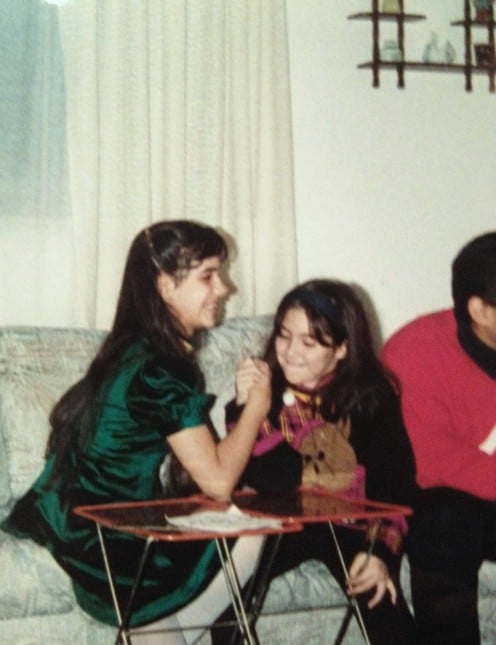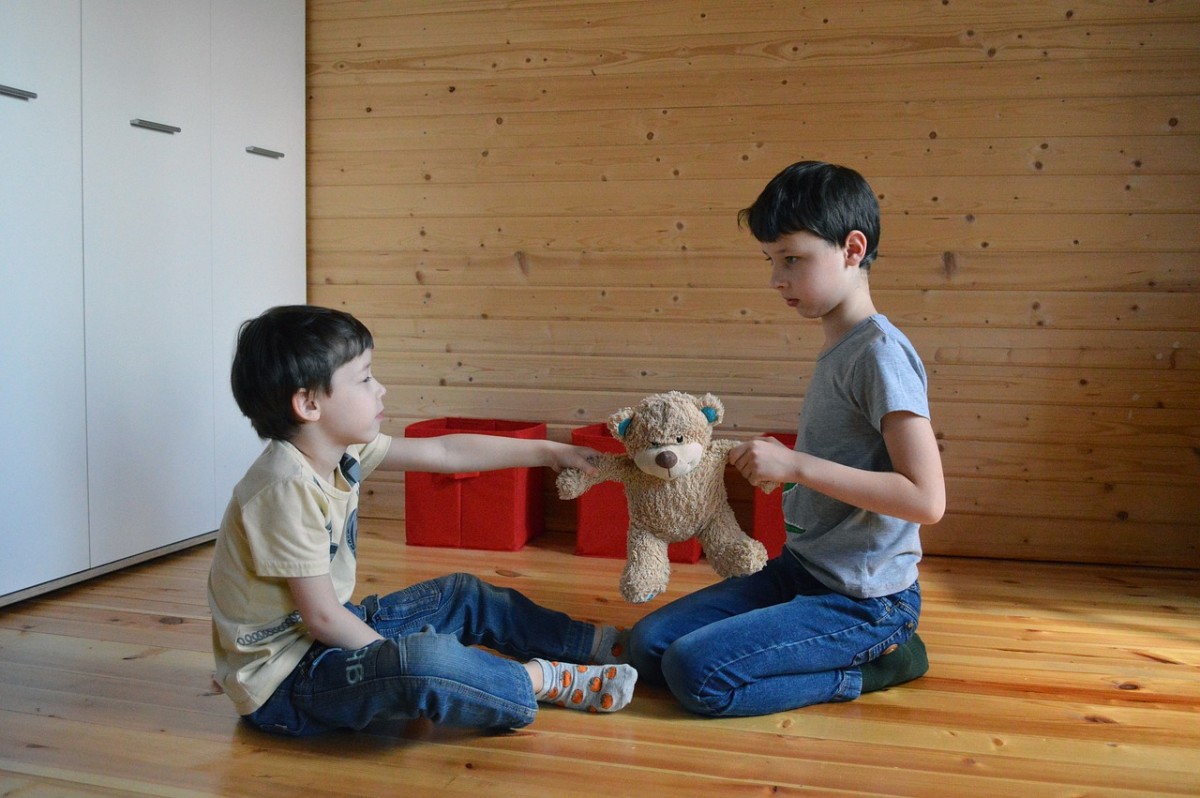Dealing With Sibling Rivalry In The Home

Family Ties
Coming from a big family, I enjoyed the number of playmates I had on any given day. With eight children, any team sport can become a reality and the hours of fun are endless. We spent many days playing softball, baseball, kickball, badminton, and conducted jump rope competitions. We also enjoyed many days just hanging out together on the front porch eating popsicles and seeing who could spit watermelon seeds the farthest.
I wish I could tell you that we never had any arguments among us, but as you can guess, the peace in the home never lasted too long. No matter what it was, or who was involved, sooner or later someone would get into a tiff over frivolous issues such as who was the better jumper or whose turn it was to go first. We were not as drastic as the Biblical Cain and Abel killing each other for attention, and not as mean as Cinderella and her stepsisters, but we were rivals nevertheless!
Yes, family ties are wonderful and build beautiful memories, but the ability to sail through parenting during the growing years takes strength and lots of patience.



Causes of Sibling Rivalry
Among my siblings, it was a pecking order that established who got to sit by the car window whenever we traveled. Since I, and my younger sister, landed at the bottom of the list in age and birth order we always had to sit in the middle. As we grew, situations such as this always made us strive to catch up with our older sisters and brother, which was impossible. The position a child fills in the family has an effect on how they interact with siblings.
I have a friend who shared that she often felt jealousy towards her brother as a child because of the many hours he spent playing sports with their dad. She felt neglected as she sat and watched from the sidelines. Parents unconsciously encourage rivalry if they treat situations like this impartially. It is difficult to treat all children equally, but acknowledgement of how each child is special or unique will provide a healthier family relationship.
I remember my sisters got to stay up a whole hour later than I when I was eight and it seemed so unfair. I pleaded with my mom to allow me to stay up just thirty minutes later, but she never gave in to my pleas. Now, I am thankful that she stood her ground and never caved to my requests. It was one of those parenting choices that proved my siblings earned their privileges based upon age and their added responsibilities. Furthermore, it made me feel special when I finally did get to stay up to watch the late night TV shows.
Statistics and Facts:
Studies show that three sibling pairs are closest in relationship while brothers and twins are the most rivalrous and more competitive. If the siblings are girls, they are most likely to keep the relationship going though the growing years and beyond. However the closer the age, the more likely they are to rival for attention when young. Reasons stated for boys being more competitive are due to parental and societal comparisons. Statements such as, "Jamie got his first tooth at four months old," and "Hunter didn't walk until he was almost two," tend to put boys in a competitive state when they hear these types of comments, even to college age.
Children as young as one years old are influenced by parental interaction with siblings. The greater the difference in preferential treatment, the more hostility and conflict between siblings. Another factor affecting sibling rivalry is if a parent does not monitor play among the children. When possible, parents should allow children to settle their own differences, but they must judge when it is time to mediate and discuss the rights of each child. (source: Child Development Institute: Parenting; Psychology Today, January 1, 1993, J. Leder)

Cast Your Vote!
Which of these siblings do you believe to be the most famous?
How to Handle Sibling Rivalry
Avoid making comparisons between your children. Acknowledge each child for their own accomplishments. If you compare children they will believe that they are either better than their siblings or unequal in talent, intelligence or behavior.
Let them know that being fair does not mean equal. Sometimes children get more freedom to choose and have different privileges due to age, ability and responsibility in the home. This will help them understand your choices and build trust. If you have a child with special needs in the family, a sibling may become resentful of the extra attention. Remind them that you are helping her or him to become more independent so that everyone can enjoy each other's company. Encourage the resentful child to help you with the process.
Teach children to be kind to one another and to follow the Golden Rule (treat others as you would want to be treated). Do not allow your children to use damaging words, teach your children how to express their feelings/emotions in appropriate ways. Also, teaching your child empathy is another virtue that goes a long way when it comes to siblings.
Realize and accept that sibling rivalry is a normal and a natural process. Siblings will get angry with one another, but they must learn to control their feelings. Teach them how to handle conflict in a positive way, and remember not to take sides or show favoritism on the issue. It is also important to give them time to settle their differences before stepping in to mediate.
Establish family rules for such things as television, computer and electronic game usage. It may be helpful to set schedules for each child. Assign chores but rotate them on a weekly (or monthly) basis. If needed, meet as a family to discuss major issues of conflict such as sharing of toys, space, parent attention, or car privileges (for older teens), that may need extra adult supervision and monitoring.
Set time to spend with each child individually, perhaps before bedtime or breakfast to let them you know you are there for them. Tell them you love them often. Use positive parenting, increase a sense of self worth by praising your children when they do something good. This will eliminate the need for negative parental attention.
Lastly, role model good behavior in your relationships with your spouse, friends, and especially in sibling interactions. Your children will learn how to interact with honesty and develop a greater understanding of their roles in the family while respecting each other.










